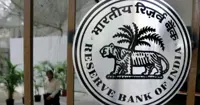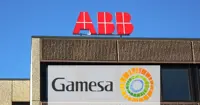Microsoft provides free security patches for Windows XP, Windows 8 and Server 2003
15 Jun 2017
After facing criticism last month for not providing free security patches to Windows XP users early enough to help protect against WannaCry ransomware, Redmond-based Microsoft has now included additional security updates for earlier versions of Windows as part of 'Update Tuesday'. These updates, Microsoft claimed, offered a higher degree of protection against cyber-attacks with characteristics similar to WannaCry.
While reviewing the security updates for June, Microsoft had identified certain vulnerabilities that posed "elevated risk of cyber-attacks by government organisations, sometimes referred to as nation-state actors or other copycat organisations," Adrienne Hall, general manager, Cyber Defense Operations Centre, said in her blog post on Tuesday.
"Due to the elevated risk for destructive cyber-attacks at this time, we made the decision to take this action because applying these updates provides further protection against potential attacks with characteristics similar to WannaCrypt," Hall said. Microsoft pulled support for Windows XP in 2014.
According to Microsoft, users on Windows 10 or Windows 8.1, the currently supported versions, having Windows Update enabled, need do nothing from their side.
Microsoft added, that the "best protection" was to be on a modern up-to-date system and that "older systems, even if fully up-to-date, lack the latest security features and advancements."
Commentators point out that until now only customers who paid hefty fees could continue to get any support for older programs such as WindowsXP and Windows 8.1.
They say the mayhem caused by WannaCry malware, which seized files on hundreds of thousands of computers with demands for ransom, appeared to have changed its approach.
The decision to issue patches to programs such as Windows XP, Windows 8 and Server 2003 was a tough one for the company, said Stephen Kleynhans, a research vice president at Gartner who looked at the enterprise PC market.
He added, if Microsoft were to play hard ball and say it was done with fixes, and then something terrible happened, ''they look like the bad guys. But if they do issue a fix, everybody who's paying is mad at them,'' USA Today quoted Kleynhans.


.webp)




























